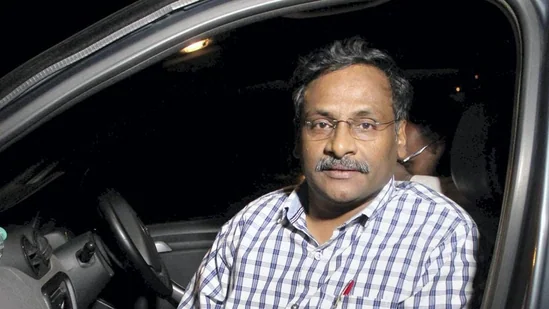In a significant development, the Bombay High Court, on Tuesday, March 5, acquitted former Delhi University professor GN Saibaba and five others in the highly contentious Maoist link case. This decision marks a crucial turn in a legal saga that has spanned several years, overturning the verdict of a Nagpur sessions court which had convicted Saibaba and his co-accused in 2017.
A bench comprising justices Vinay Joshi and Valmiki SA Menezes delivered the verdict after revisiting the appeal by GN Saibaba, following a prior acquittal by a different bench of the high court on October 14, 2022, as reported by Bar and Bench.
The bench cited the failure of the prosecution to conclusively establish the guilt of the accused beyond a reasonable doubt as the primary reason for acquitting them. Notably, the court also declared the sanction procured by the prosecution to charge the accused under the stringent Unlawful Activities (Prevention) Act (UAPA) as “null and void”.
During the trial proceedings at the Sessions Court in Gadchiroli, Maharashtra, the prosecution argued that the accused were involved with the banned CPI (Maoist) group through front organisations like RDF. Evidence presented by the prosecution included seized pamphlets and electronic materials deemed anti-national, allegedly recovered at the direction of GN Saibaba in Gadchiroli. Additionally, it was alleged that Saibaba had provided a 16GB memory card intended for Naxalites in the Abuzmad forest area.
While the prosecution did not seek a stay on the high court’s order, it indicated its intention to file an appeal in the Supreme Court promptly.
GN Saibaba, aged 54 and wheelchair-bound with a 99% disability, is currently incarcerated in Nagpur Central Jail.
This acquittal comes after a series of legal maneuvers and judgments in the case. Initially convicted in 2017 along with five others, including a journalist and a Jawaharlal Nehru University (JNU) student, for alleged Maoist links and activities amounting to waging war against the country, Saibaba’s conviction was overturned by a different bench of the Bombay High Court in October 2022. However, the Maharashtra government swiftly challenged this decision in the Supreme Court.
In April 2023, the Supreme Court set aside the high court’s order and directed a fresh evaluation of the case. Subsequently, in a plea filed by the Maharashtra government, the Supreme Court overturned its earlier decision regarding the acquittal, instructing the Bombay High Court to reevaluate the case afresh.
The Supreme Court emphasised that the high court must consider all aspects of the case, including the question of sanction, without prejudice and solely on its merits. It also directed that the case be assigned to a different bench to ensure propriety and avoid any perceived biases.
It is important to note that the Supreme Court clarified it had not made any determination on the merits of the case and stressed the necessity for a thorough review by the high court.

















Comments